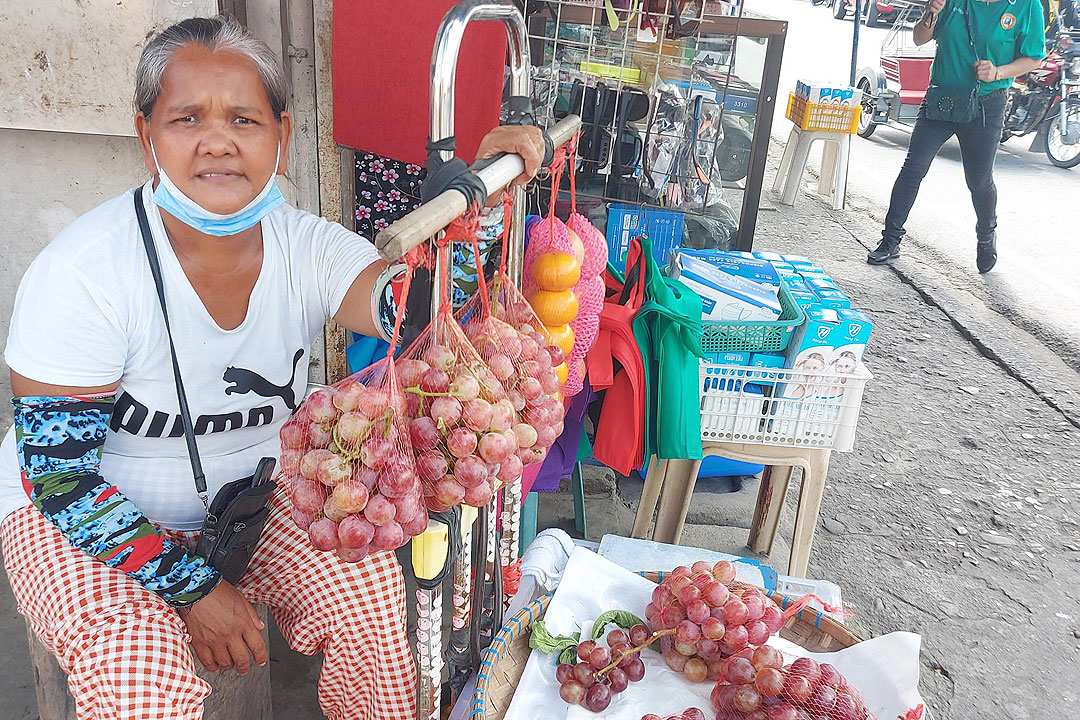Coronavirus pandemic worsens gender balance, hurts Filipino women the most

By Luz Wendy T. Noble, Reporter
MARY GRACE T. CANGMAONG, 48, lost her job as a saleslady at the Chinatown Gold Center in downtown Manila after it was closed in mid-March 2020 amid a coronavirus pandemic.
Her salary was below the P537 daily minimum wage when adjusted for inflation, but it did help pay the rent and in feeding their four children, she said by telephone. “I only finished high school so it’s difficult to find a good job,” Ms. Cangmaong, whose husband is a security guard, said in Filipino.
Women and girls face distinct hardships amid the pandemic that has run for almost two years now, and the fallout exposed how deeply gender inequality remained embedded in the world’s political, social and economic systems, according to the United Nations.
 Nowhere is this more evident than in the Philippines, where women face challenges such as economic insecurity, access to healthcare services, gender-based violence and other human rights violations.
Nowhere is this more evident than in the Philippines, where women face challenges such as economic insecurity, access to healthcare services, gender-based violence and other human rights violations.
“If you are an employer, your instinct would be to let go of the women first because they’re not primary breadwinners,” Nathalie Lourdes A. Verceles, director of the University of the Philippines Center for Women’s and Gender Studies, said in a Zoom Cloud Meetings interview. “You assume that there will be a primary breadwinner, anyway. You feel less guilty.”
Filipino women are mostly seen as primary homemakers while men are viewed as breadwinners, she pointed out.
About 5% of women worldwide lost their jobs during the pandemic, compared with 3.9% for men, according to a study by the International Labour Organization (ILO) published in January.
The Philippine jobless rate hit 8.1% in August, but it was worse for women (8.3%) than for men (7.9%), according to data from the local statistics agency.
It didn’t help that contact-intensive sectors such as tourism, hospitality and sales, where many women are employed, were among the worst hit by the pandemic, said Eylla Laire M. Gutierrez, a research manager from the Asian Institute of Management (AIM).
Women also play a big part in the country’s informal economy, making the losses disproportionately bigger for them, she said in a Viber message.
“As a member of the informal sector, Filipino women have a lower earning capacity, hence lower savings,” Ms. Gutierrez said. “This also means that women have little to no access to labor protection such as vacation and sick leaves.”
A study by McKinsey and Co. showed that even for couples who are both employed, mothers are twice as likely as fathers to spend five extra hours a day on house chores during the global health crisis.
Aside from house chores, Ms. Cangmaong also tries to teach her children at home lessons that she finds are becoming more difficult. She also must ensure that the family keeps its spending within the budget.
Because women have the burden of taking care of their families, they often suffer from stress and anxiety caused by the current work-from-home setup, Ms. Gutierrez said. “Women during this pandemic are forced to balance work with housework and care.”
“The mother is in charge of making sure the budget is spent wisely,” Ms. Cangmaong said. “It’s stressful when the money is simply not enough. Sometimes, you can’t buy things you want because there’s no money. And it’s difficult for people my age to find a job.”
BLEAK PROSPECT
Some women have been forced to quit their jobs so they can take care of their family better.
“It’s possible that women are voluntarily opting out of the labor force because of increased household chores,” Ms. Verceles said. This, as some women are part of the so-called sandwich generation — middle-aged people who support their aging parents and children whether financially, physically or emotionally, she added.
Some women who left their work temporarily face bleak job prospects, Ms. Gutierrez said. Many of them might have to return to lower skilled and lower paid jobs, she added.
On the bright side, the pandemic showcased women’s contribution in fighting the pandemic, particularly healthcare frontliners and workers in the retail industry, Ms. Verceles said.
“We need to recognize that women are playing significant roles in responding to the pandemic, including as frontliners and elected officials,” she said. “They are overworked and underpaid and they are still waiting for their hazard pay.”
Ms. Verceles also noted how women in the family are tapping their cooking and baking skills to help augment the family income.
On the leadership front, she noted how some economies with female leaders demonstrated good pandemic management including Taiwan and New Zealand, which are led by Tsai Ing-Wen and Jacinda Ardern.
“Societal institutions train us women to be caring, sensitive, empathetic, understanding, emotionally open, patient, intuitive, creative and organized,” Ms. Verceles said. “What is considered feminine are values that all, regardless of gender, ideally should have during a pandemic.”
The government should ensure inclusive recovery by taking into account the fact that men and women are affected differently by the pandemic, Ms. Gutierrez said. Policy makers should craft recovery plans that are gender-sensitive, including support for childcare facilities, she added.
More women in government could help address the gender gap, Marikina Rep. Stella Luz A. Quimbo said in a Viber message. The lawmaker, who is a member of the House of Representatives Committee on Women and Gender Equality, said only 28% of House lawmakers and only seven of 24 senators are women.
“Sadly, both houses of Congress still fall short of having that 30% critical mass mentioned by some scholars, much less equal, 50-50 representation,” she said.
The House is discussing a bill on gender responsive and inclusive pandemic management, which seeks to ensure mechanisms are in place to help women deal with job loss and business closures, reproductive health, economic empowerment and security against gender violence.
“It’s high time to consider subsidizing childcare facilities in ensuring women’s continued participation in the workforce and in adapting to the needs of this pandemic,” Ms. Gutierrez said.
Women should also be given wider access to capital to help them set up their own small businesses, Ms. Verceles said.
“We want to pull women out of that rut where they only do work and earn enough to meet their daily needs, and not to save,” she said.
In the end, mothers can only dream of better days ahead not just for themselves but also for their children.
“My wish is for this crisis to finally end,” Patricia M. Marasigan, a 46-year-old fruit vendor from Batangas City, said in an interview. “I can barely earn because I have fewer customers. I want our life to be normal again.”



